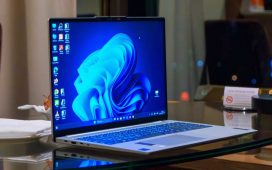Confirming speculation in recent years, Apple is apparently working on a slew of new payment-related services, including a dedicated iPhone subscription plan, according to Bloomberg.
Apple-as-a-service: The transition continues
In a nutshell, Apple plans to let people rent iPhones and other Apple hardware just like they already pay for Apple Music. And the pace of speculation is accelerating.
Unlike the iPhone Upgrade Scheme, in which users do eventually purchase the device, this scheme would let Apple rent devices for a flat fee, something the company had hoped to introduce last year.
The Apple-as-a-service plan is one of several financial services Apple has in the works, including the delayed Buy Now Pay Later and the announced — yet still elusive — Apple Cash savings account.
The former is expected to launch in the US with iOS 16.4, probably in March.
Apple is also working on something it calls Apple Pay Monthly Installments, offering larger loans over a longer period, the report claims – but “engineering and technical setbacks” are impeding development and introduction.
What problems exist?
The report claims some of problems reflect Apple’s ambition to handle all aspects of payment and credit processing in a project it calls internally “Project Breakout.” If that’s the case, then part of the challenge might relate to integrating technologies Apple acquired with the Credit Kudos purchase.
That makes sense given the Buy Now Pay Later loans rely on soft credit checks that leave no trace on credit records. That’s precisely what Credit Kudos aimed to deliver.
Alternatively, the purported delays could reflect resistance by mobile carriers, given the proposition might be seen as a challenge their business models, or even snags identified in the Find My system since introduction of AirTags.
That’s a lot of speculation.
Freedom’s just another word….
Apple’s goal is obvious. It no longer wants to be in thrall to the success of each new hardware release or slapped by any future supply chain challenges. In the rapidly transforming new business environment, the company craves recurring incomes above product-driven billions, and hopes to continue to increase the average revenue it generates per user (ARPU). Services contributed $20 billion in Apple’s last quarter — more than Mac and iPad sales combined.
These are not zero-sum plans.
There is no doubt Apple will continue to sell iPhones, offer them via carriers, and provide them at the refurb store, but renting devices has significant advantages in terms of recycling and refurbishment of products and product components.
While there will always be resistance to rental plans, consumer opinion is slowly changing and many feel more relaxed about renting. The value of the second-user market is almost certainly part of the ambition here, too. That’s a $100 billion business in itself.
Every smartphone manufacturer currently feels the squeeze, as economic constraints affect their markets. Smartphone prices are heading north as manufacturers seek to capture revenue share, even as volume sales decline across the industry.
Even Apple has seen its sales volume slow, though this is offset by record numbers of Android-to-iPhone switchers and increasing relative market share in comparison to others.
While it’s dangerous to speculate, any move to make high-end iPhones more available to a wider number of customers at monthly prices they can afford should help Apple consolidate its existing smartphone market share — with the added benefit of providing that most valued business asset of predictable incomes.
Though rather a lot probably depends on making sure the credit scoring and asset recovery features of this brave new 21st century Apple-as-a-service product deliver accurate data on which to base credit decisions.
Please follow me on Mastodon, or join me in the AppleHolic’s bar & grill and Apple Discussions groups on MeWe.
Copyright © 2023 IDG Communications, Inc.











